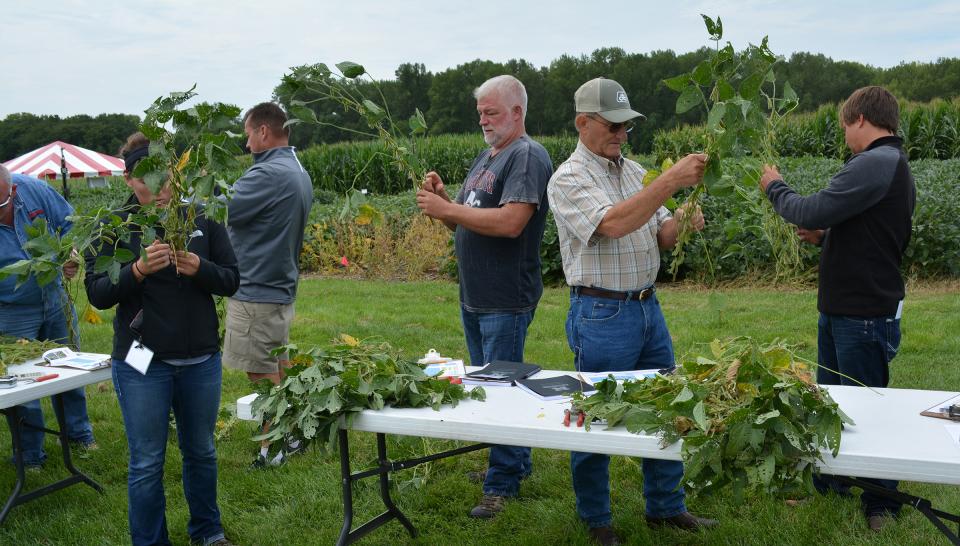
August Corn and Soybean Production Clinics Offer Unique In-Field Learning
Examine and work with corn and soybean plants from early vegetative to maturity growth stages at Nebraska Extension’s Aug. 23 Soybean Production Clinic and Aug. 24 Corn Production Clinic. Agribusiness professionals and crop producers will get hands-on, in-field experience working with crop scientists to identify crop issues throughout the production cycle at the University of Nebraska Crop Management Diagnostic Clinics.
They’ll be able to identify agronomic issues and key insect and disease pests at different plant growth stages and discuss management strategies based on university research.
Both clinics will be held at the University’s Eastern Nebraska Research and Extension Center (formerly the Agricultural Research and Development Center) near Mead. Participants will meet at the August N. Christenson Research and Education Building.
At the August 23 Soybean Clinic, participants can examine fields to see why early soybean planting is a crucial first step to improving yield potential and how four seeding rates and four seeding depths impacted soybean emergence, plant branch numbers, and pod numbers at the lowest stem nodes. They’ll also examine disease, insect, and weed effects at different stages. Presentation and field demonstrations throughout the day will cover cultural practices; genetics/agronomics; insect management; plant pathology; soil fertility; and five keys to successful weed science. View more details in the program flyer. Registration begins at 8 a.m., followed by the clinic from 8:30 a.m. – 5 p.m.
At the August 24 Corn Clinic participants will dig plants and stage corn while exploring the differences between corn growth and development. They’ll examine the most critical development stages and what affects yield at these stages as well as how different hybrids react to the same weather conditions. Plots will also show how decisions about plant population can expand or cap crop yield opportunities. They’ll also examine disease, insect, and weed effects at different stages. Presentation and field demonstrations throughout the day will cover agronomy cultural practices; insect damage; plant pathology; soil fertility; and keys to successful weed management. View more details in the program flyer. Registration begins at 7:30 a.m., followed by the clinic from 8 a.m. - 4:30 p.m.
Registration and CCA Credits
A total of 8 Certified Crop Adviser credits (crop management, 2; nutrient management, 2; and pest management, 4) have been applied for and are pending approval for each clinic. Participants will earn 16 credits by attending both days.
Early registration is recommended to reserve a seat (limit 60) and resource materials. Cost for one clinic is $95 for those registering one week in advance and $120 after. Special pricing is available for those registering for both clinics: $150 by August 18, $200 after.
For more information or to register, contact the Nebraska Extension CMDC Programs, 1071 County Road G, Ithaca, NE 68033, call (800) 529-8030, fax (402) 624-8010, e-mail cdunbar2@unl.edu, or visit the Web at http://ardc.unl.edu/cmdc.shtml.
Online Master of Science in Agronomy
With a focus on industry applications and research, the online program is designed with maximum flexibility for today's working professionals.
